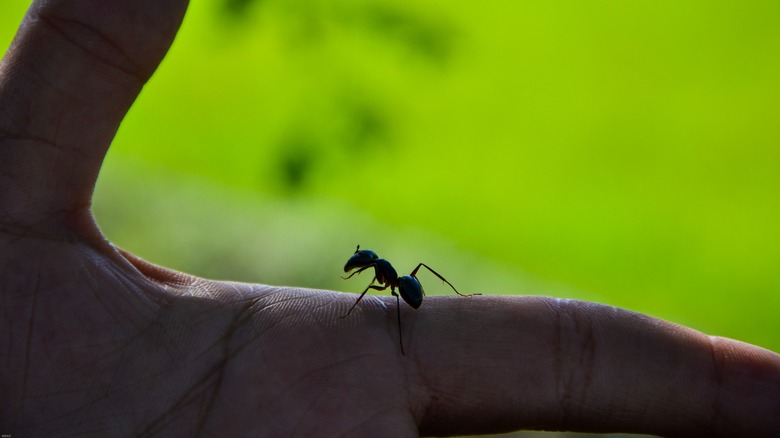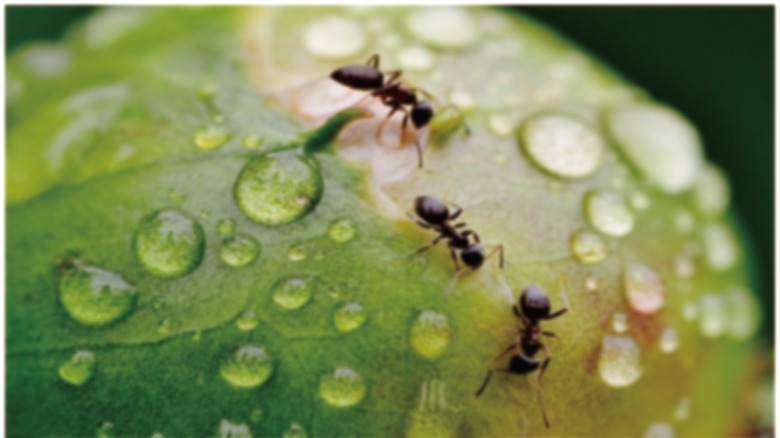2 Top Nordic Restaurants Use Wood Ants In A Unique Way
Eating ants isn't new. According to FAO Forestry Paper, roughly two billion people around the world eat insects. As one researcher has observed in a study published in Asian Myrmecology, ants are cheap, nutrient-rich, and may even contain medicinal qualities. Research from Harvard University maintains that ants have the capability to become valuable food sources, with the potential to be used in healing pharmaceutical products. It has been thought that ants can bring vitality to elderly people, improve overall health and wellbeing, and even increase milk production in women (via The Food Insects Newsletter).
Ants offer "special strength," says a Colombian shopkeeper, who has watched the delicacies appear on elegant dining spreads and in street-side stalls as fried treats (per BBC). The surprising culinary addition has been embraced by two inventive — and three-starred Michelin chefs, might we add — culinary pioneers. If you're questioning their choices, rest assured; their restaurants have been listed as two of the World's 50 Best.
Ants as an unexpected flavor
The head chef of Maaemo, Norway's first three-starred Michelin restaurant, uses ants instead of lemons, per The Brag. Since lemons don't grow in Norway, Chef Esben Holmboe Bang needed to find an acidic flavor he could use in recipes, and ants were his answer. Fellow Michelin-winner Chef René Redzepi has also incorporated ants into his creative fare. Known for foraging locally-sourced ingredients, Redzepi's research initiative Nordic Food Lab presented the recipe at an insect festival.
The dish is called Ants on a Stick, and the ants supposedly taste like kaffir lime and lemongrass (via Fine Dining Lovers). Diners choose how they want to eat the presentation — all in one bite or as individual pieces — but, as the creators assert, "Our hope was to evoke the mess of flavors and textures that would surround the ants in their field or forest habitat." If you're trying to recreate the experience at home, however, be warned; according to Healthline, the preparation of edible ants varies by country and type of ant species.

